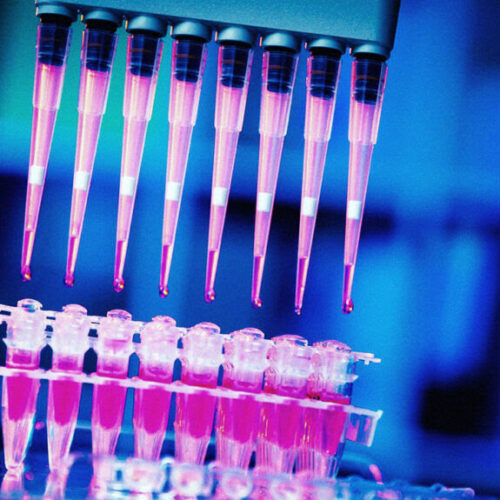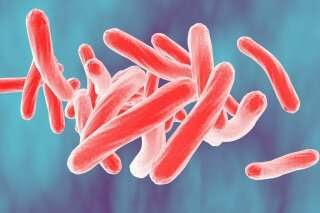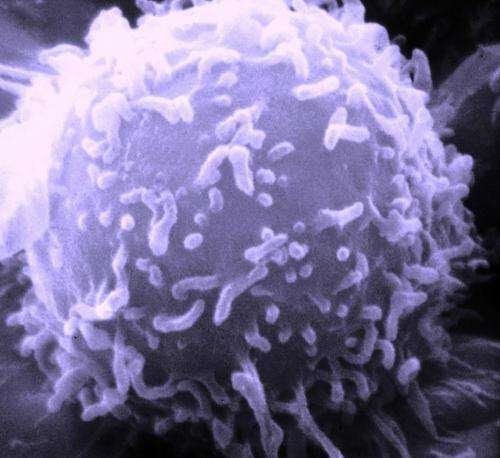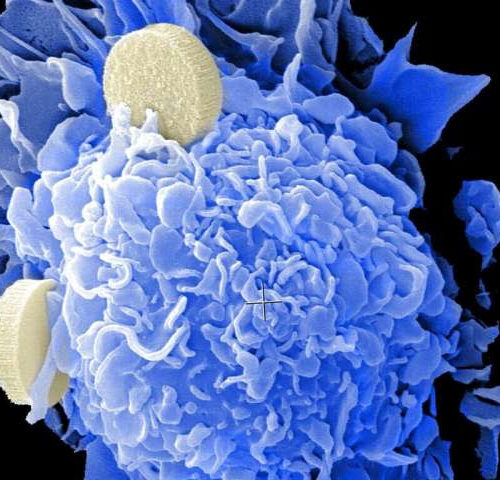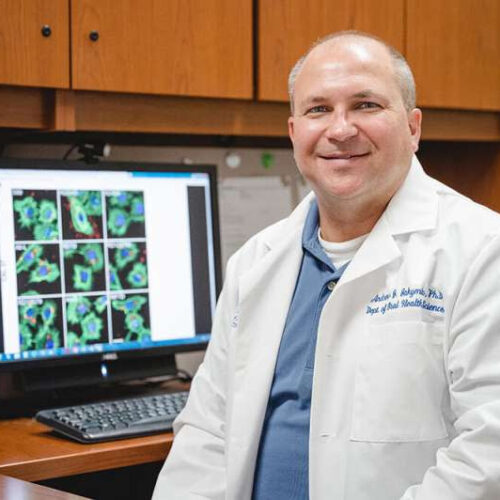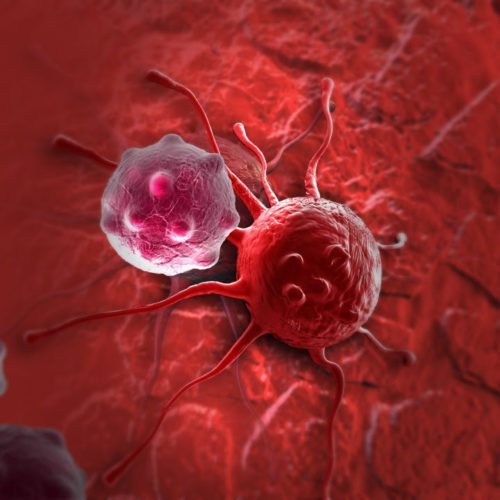Two drugs may help treat advanced tumors, new research finds. luchschen/Getty Images Researchers have found two drugs to be safe and effective in treating individuals with advanced solid tumors. These medications, ATR inhibitor elimusertib and PARP inhibitor AZD5305, can block key mediators behind DNA damage response (DDR). In clinical studies, these drugs only induced “reversible...
Tag: <span>cancer drugs</span>
Study: Cancer drugs might be able to target tuberculosis
by Krista Conger, Stanford University Medical Center An illustration of Mycobacterium tuberculosis bacteria. Credit: Kateryna Kon/Shutterstock.com An unexpected link between tuberculosis and cancer may lead to new drug treatments for the bacterial disease that kills more than 1.5 million people each year, according to a study led by researchers at Stanford Medicine. The study found...
Combination of two cancer drugs make pancreatic tumors treatable with immunotherapy methods
by Technical University Munich First author Chiara Falcomatà (left) running the high-throughput screening. Credit: Technical University Munich Pancreatic carcinoma is a tumor with an extremely poor prognosis for which effective treatments have not yet been found. In a preclinical animal model with mice, a team of researchers has now discovered a way of making pancreatic...
Scientists retool CAR T cells to serve as ‘micropharmacies’ for cancer drugs
by Memorial Sloan Kettering Cancer Center Electron microscopic image of a single human lymphocyte. Credit: Dr. Triche National Cancer Institute Immunotherapies called chimeric antigen receptor (CAR) T cells use genetically engineered versions of a patient’s own immune cells to fight cancer. These treatments have energized cancer care, especially for people with certain types of blood...
A target for potential cancer drugs may, in fact, worsen disease
by Scott Lafee, University of California – San Diego Credit: Unsplash/CC0 Public Domain In recent years, much scientific effort and funding has focused on developing drugs that target an enzyme with the unwieldy name of Src homology 2-containing protein tyrosine phosphatase 2 or more briefly, Shp2. Shp2 is a phosphotyrosine phosphatase; its job is to...
Chemical changes to peptide siRNA-carrier enhance gene silencing for future cancer drugs
by Caroline Wallace, Medical University of South Carolina Dr. Andrew Jakymiw and his team found a peptide carrier with heightened potential to deliver a cancer therapeutic for oral cancer. Credit: Marquel Coaxum MUSC Hollings Cancer Center researchers are exploring the use of peptide carriers for the delivery of small RNA drugs as a novel treatment for cancer. The...
Cancer drug: New treatment halts tumour growth
By Rachel Schraer Health reporter A drug that could stop cancer cells repairing themselves has shown early signs of working. More than half of the 40 patients given berzosertib had the growth of their tumours halted. Berzosertib was even more effective when given alongside chemotherapy, the trial run by the Institute of Cancer Research (ICR)...
Solving a molecular mystery may have opened new class of cancer drugs
By Michael Irving Researchers at the Broad Institute of MIT and Harvard have solved a molecular mystery that might lead to new treatments for cancer. The team has uncovered just how a strange molecule works to kill cancer by inducing a little-known type of cell death, and identified other molecules that may work even better....
Scientists identify drug fragments that could lead to new cancer drugs
by Institute of Cancer Research The SAM domain of Tankyrase self-assembles into structures resembling curled pearl strings. The image shows a representation of these structures, elucidated by X-ray crystallography. The background shows colorectal cancer cells stained for their cell nuclei (blue) and destruction complexes (red and green). Credit: Dr Sebastian Guettler, ICR. Researchers have found...
Parkinson’s: Study reveals how cancer drug reduces toxic protein in brain
By Catharine Paddock PhD Fact checked by Paula Field Laboratory and animal studies have suggested that the leukemia drug nilotinib could alleviate symptoms of Parkinson’s disease. Now, using early results from a clinical trial in humans, scientists have worked out how the drug reduces toxic protein and raises dopamine levels in the brain. Loss of dopamine,...

